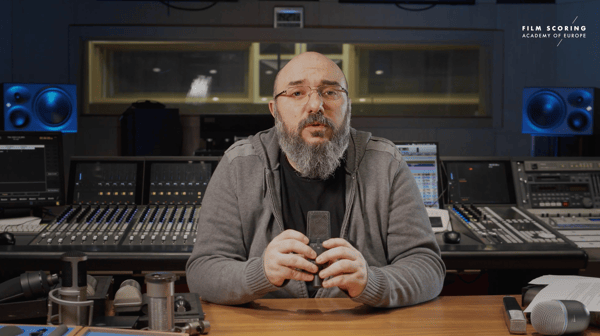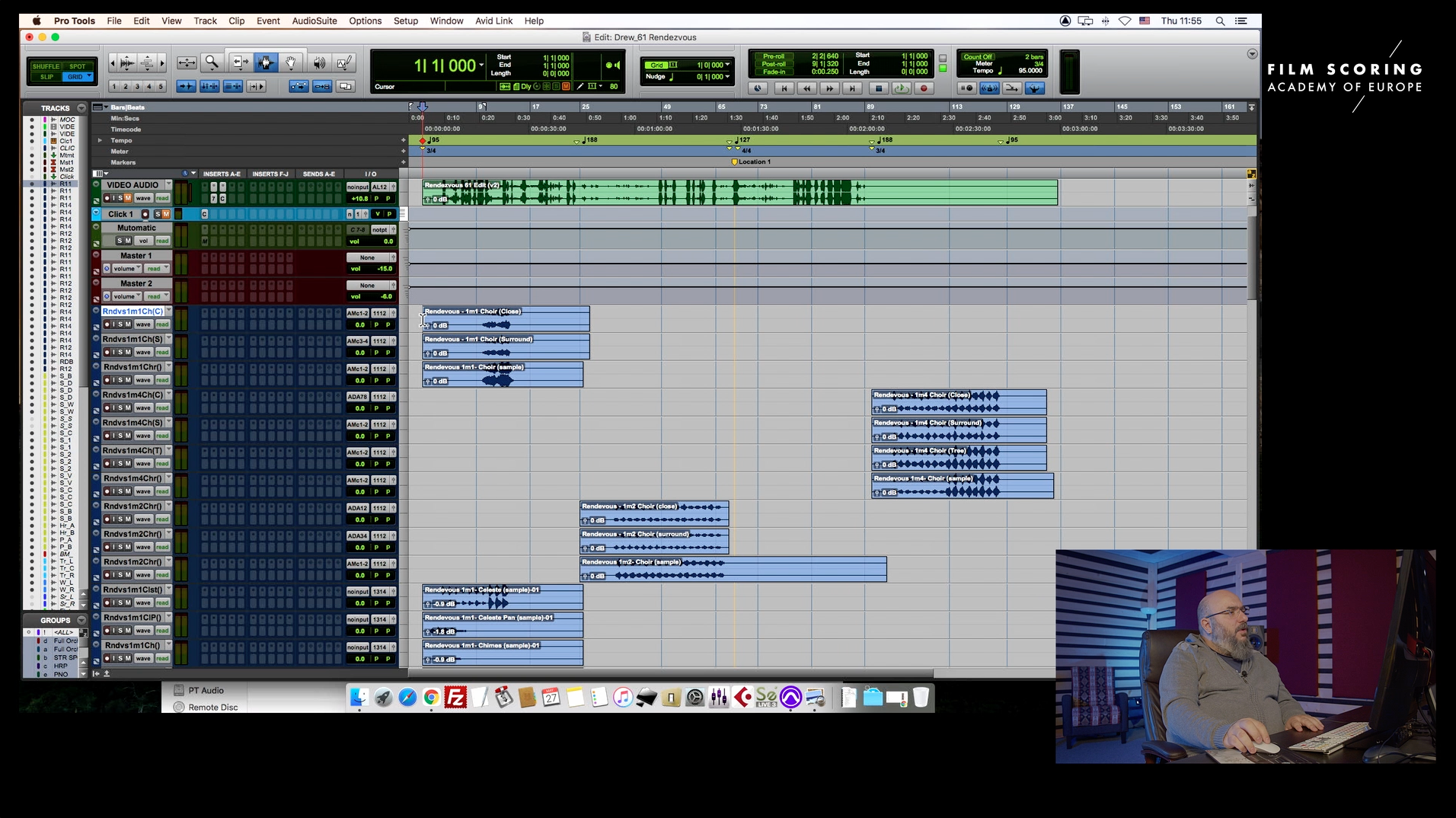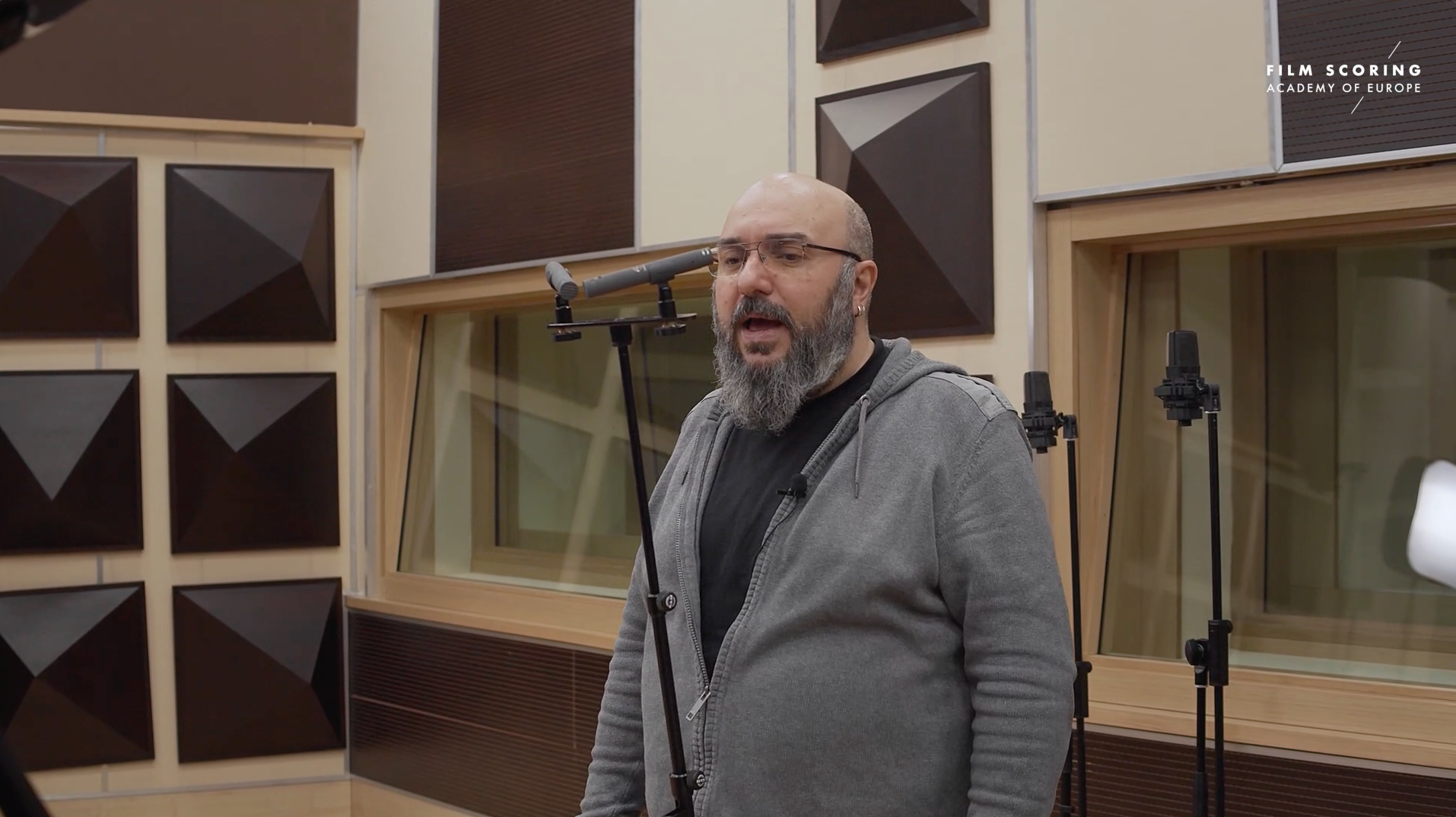Recording and Mixing for Orchestra and Film
Learn the comprehensive process of recording and mixing music for orchestra and film to achieve audio excellence, synchronization, and collaboration with industry professionals.
Module 7 (3 credits)
In this module you will receive thorough instructions on the entire process of recording live music, as well as mixing your sessions. From microphone and ensemble setup, to the session itself, through the fundamentals of mixing and mastering with ProTools, this module is designed to give you a competent level of experience in mixing and mastering your music.

What will you learn in this module?
- Synchronization: Ensuring that the music aligns perfectly with the visual elements of the film, including precise timing and synchronization.
- Audio Quality: Achieving a high-quality audio recording that captures the full range and dynamics of the orchestra, while minimizing unwanted noise and maintaining clarity.
- Balance and Mixing: Balancing the different elements of the music, such as instruments, vocals, and effects, to create a cohesive and well-mixed soundtrack that supports the visuals and enhances the storytelling.
- Technical Expertise: Navigating the complexities of recording equipment, microphones, and digital audio workstations to achieve optimal sound capture and manipulation.
- Time Constraints: Working within tight deadlines and schedules, coordinating with musicians, engineers, and other professionals involved in the recording and mixing process.
- Artistic Vision: Translating their creative vision and emotional intent into the recording and mixing process, ensuring that the music effectively conveys the intended mood, atmosphere, and narrative of the film.
- Collaboration: Collaborating with directors, producers, and sound engineers to effectively communicate their musical ideas and align them with the overall vision of the project.


Why is it important that you become a competent mixing engineer?
- It allows you to bring your compositions to life with the richness and depth of live orchestral performances.
- By mastering the recording and mixing process, you can ensure the highest audio quality and synchronization with the picture.
- Collaborating with music editors and audio engineers enhances your understanding of the post-production workflow and improves the final outcome of your compositions.
- It provides you with valuable skills in working with live musicians, audio equipment, and digital audio workstations, opening doors to more opportunities in the industry.
Have questions about this programme?
Speak with our Admissions Department. Submit our enquiry form to receive personalised answers to your questions.